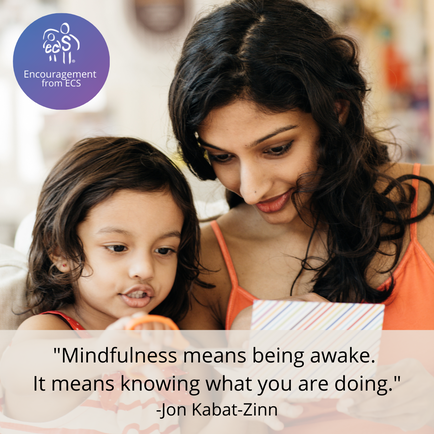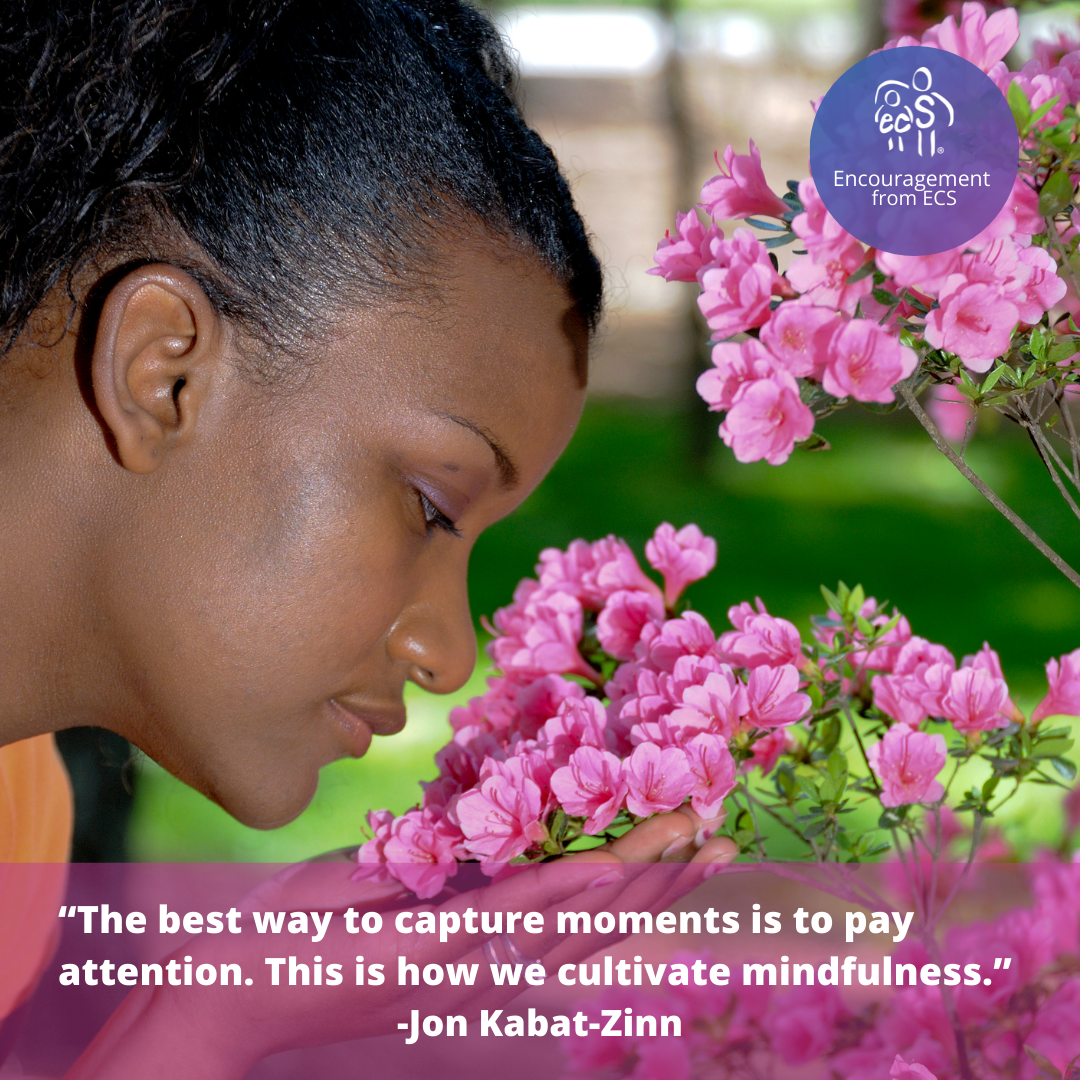For now, let's focus on the "why." How can we, our children, and our classrooms benefit from practicing mindfulness and from teaching it to children? Personally, I've found that practicing mindfulness this past year has helped me to handle the stress that the COVID-19 pandemic has added to my life. I've also noticed improvement in these seven benefits of mindfulness that research demonstrates or suggests: 1. Mindfulness helps us manage our emotions in stressful situations. When we're stressed out, we don't do our best thinking or self-regulating. We may tend to react to things that trigger us, rather than responding in a thoughtful, compassionate and intentional way. Mindfulness helps to lengthen the amount of time between when something upsets us and when we react, so we are more likely to respond in a way that reflects the best version of ourselves. 2. Mindfulness allows us to accept ourselves without judgment. When we are mindful, we accept whatever is happening without judging it. That includes self-judgment. My whole life I've had a tendency to beat myself up over mistakes, while forgiving others theirs. By becoming mindful, I've learned to focus more on "What can I learn from this?" and "How can I make amends? and less on "I'm an idiot!" or "I can't do anything right!" This shift in mindset actually helps me make fewer mistakes (although I still make plenty) and puts me on the path to become the best version of myself that I can be. 3. Mindfulness can lower our anxiety level and reduce stress. The past two years have been especially stressful for me; I bet they have been for you as well. So we all can probably use some assistance in reducing our stress and anxiety levels. In looking at research on perceived stress for early childhood teachers, I discovered that mindfulness does just that. In early childhood classrooms, mindfulness has the added benefit of improving classroom climate for both adults and children. (2) 4. Mindfulness can help us get along better with others. A recent study demonstrated that mindfulness programs helped children to become more considerate, helpful, and caring. They were also more likely to share and to be kind to younger children. (6) This finding is consistent with other research showing that mindfulness activities at school help to promote prosocial behaviors. 5. Mindfulness can improve our attentional processes. In a study of the effects of mindfulness training on three- and four-year olds, the children greatly improved their ability to focus their attention. (3) This makes sense, because the mindfulness activities the children practiced included belly breathing and paying attention to a specific sensory system. They also learned to relax and to gain awareness of each body part. Other research (i.e., 5) has demonstrated improved attention for older children and adults, including those with autism and ADHD. So there’s a benefit for everyone to improve their focus! 6. Mindfulness helps us to build resilience. Resilience is the ability to "bounce back" after facing a setback or challenge. While all adults and children can build their resilience by being mindful, research demonstrates that some children can especially benefit: Children with mental, emotional, or behavioral conditions, and those who have been exposed to traumatic experiences. (1) If there are children experiencing these problems in your classroom or home, try helping them practice a few mindfulness activities - and practice them yourself when their behaviors "push your buttons". The practice of mindfulness in conjunction with a strong relationship will do wonders to help you and your children handle and prevent those troublesome behaviors. This brings us to the next benefit of mindfulness... 7. Mindfulness can improve our classroom management. Research shows that teachers’ mindfulness decreases challenging behaviors and increases children’s compliance with teacher requests. (4) Who doesn't want to see fewer challenging behaviors in their classroom or home? Mindfulness helps us change our perception, viewing children with positive intent (assuming they are doing the best they can under the circumstances) and their troublesome behavior as an opportunity to teach children how to do better.  With all these benefits of mindfulness, why not give it a try? Remember, mindfulness is something we develop though practice, not something we're born with. We can all learn to do it, both children and adults. And the good news is, practicing mindfulness only takes a moment! So anytime you have a minute or two, try a mindfulness activity like focusing on your breathing. When you do, you'll be benefitting yourself, your children, and your classroom, too! Again, watch for upcoming blog posts to get lots of ideas and resources about mindfulness, and please share your own mindfulness practices in the comments. I'm wishing you peace and wellness! References
0 Comments
|
AuthorI'm Diane Goyette, a Child Development Specialist, Trainer, Consultant and Keynote Speaker. I'm excited to share my blog! Archives
August 2023
Categories
All
|
|
Ways to Contact Us:
Schedule an Appointment |
|
Follow earlychildhoodspecialties for encouragement, teaching tips and more!
|
Follow eepworm for child-friendly posts!
|
© 2013-2024 Early Childhood Specialties LLC. All rights reserved.


 RSS Feed
RSS Feed